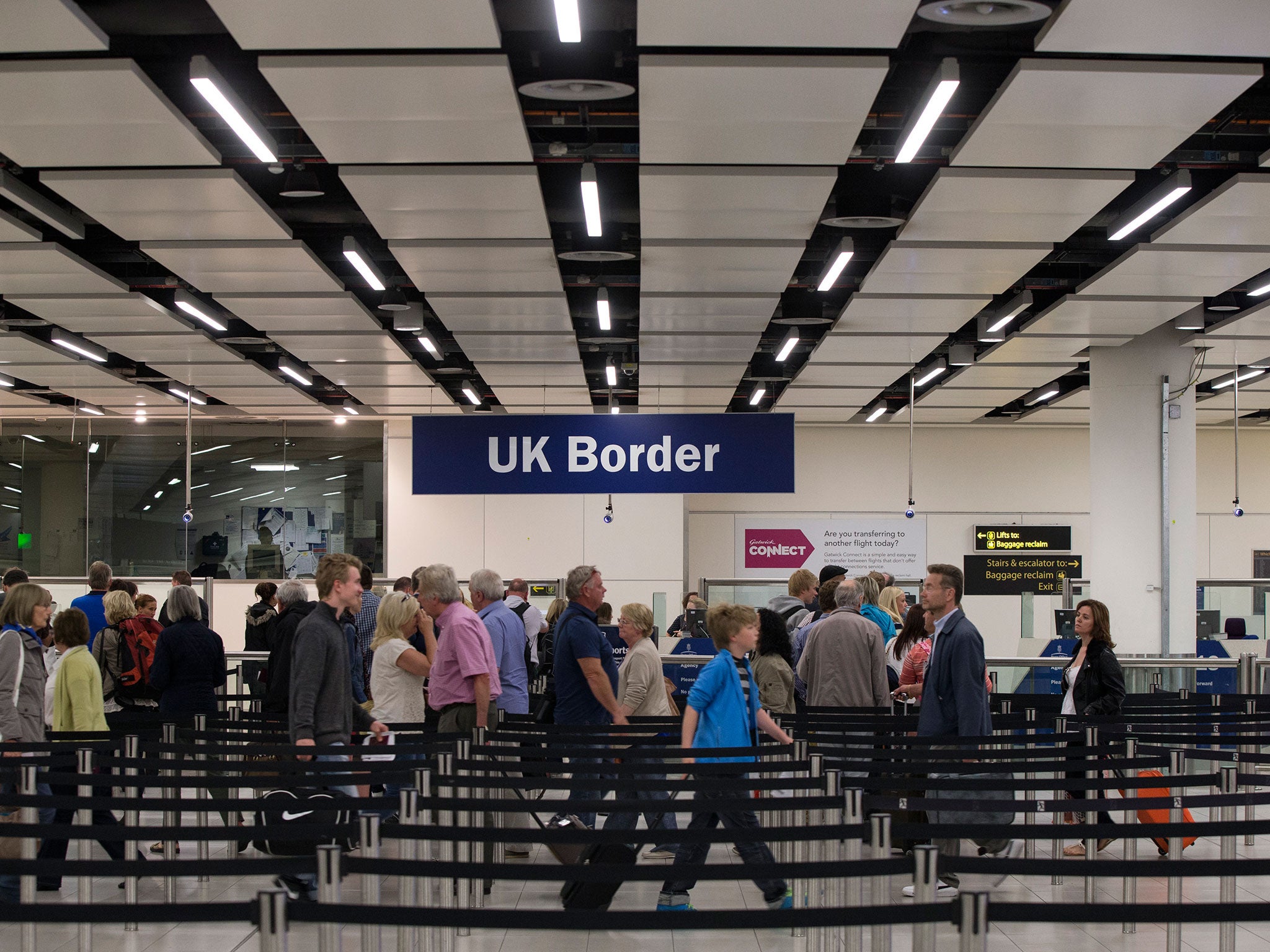New migration figures are an indicator of Britain’s economic success
The one sure way of hitting David Cameron’s foolish net immigration target would be to trash the economy

More good news: the British economy is still growing steadily, creating jobs at an unprecedented rate. One of the measures of this success is the latest migration figures, which show that fewer people have left the UK, and more have come from the rest of the European Union to work here.
The miracle of something close to full employment, so soon after a deep recession, is, we suspect, not what David Cameron and George Osborne expected. Nor should they take the credit for it. As far as economists can tell, it was Gordon Brown’s policies as Chancellor and Prime Minister that we must thank, to the extent that government is responsible at all.
Every quarter for the past few years, the migration figures have trumpeted the jobs miracle of the British economy, but they have also exposed the contradictions of Mr Cameron’s politics. With one face, he boasts of record rates and levels of employment. With the other, a face that he somehow keeps straight, he repeats that he wants to get net immigration down to the “tens of thousands” a year. This has been taken to mean a target of 100,000, and the figure of 330,000 for 2015 is not even close.
Thank goodness for that. The one sure way of hitting the target would be to trash the economy, so that it no longer offers new jobs – either for British citizens or for Romanians. Then the emigration numbers would go up, as they did in past recessions, the immigration numbers would go down, and the “net immigration” target could be reached.
The other way of reducing net immigration would be to leave the EU and to exclude the UK from the freedom of movement of workers. The end point – economic misery – would be similar. If the UK closed its doors to more than two-thirds of prospective immigrants, skill and labour shortages would soon cause the economy to seize up.
In the short term, as some of the more economically literate Leave campaigners point out, wages for some low-paid workers might rise, but any benefits would be wiped out quickly by the underperformance of the economy as a whole.
With the Prime Minister’s third face, he sometimes cautiously makes the case for freedom of movement. He implies that it is a regrettable necessity, a price worth paying for the greater prosperity and more jobs, not just for immigrants but for British-born workers too. He ought to be more positive. Immigration is both a symptom of economic success and a cause of further prosperity.
Of course, Mr Cameron is right to recognise that immigration is a matter of weighing costs and benefits, and there is no doubt that net immigration at these levels does impose some strains, especially on the housing market.
But The Independent believes that the benefits heavily outweigh the costs – not just the cultural benefits but the economic benefits of a free and successful market.
People want to come to Britain because it is an open, dynamic economy and a tolerant, strong society. By coming, immigrants contribute more than they take out, meaning that success breeds success. Long may that success continue.

Join our commenting forum
Join thought-provoking conversations, follow other Independent readers and see their replies